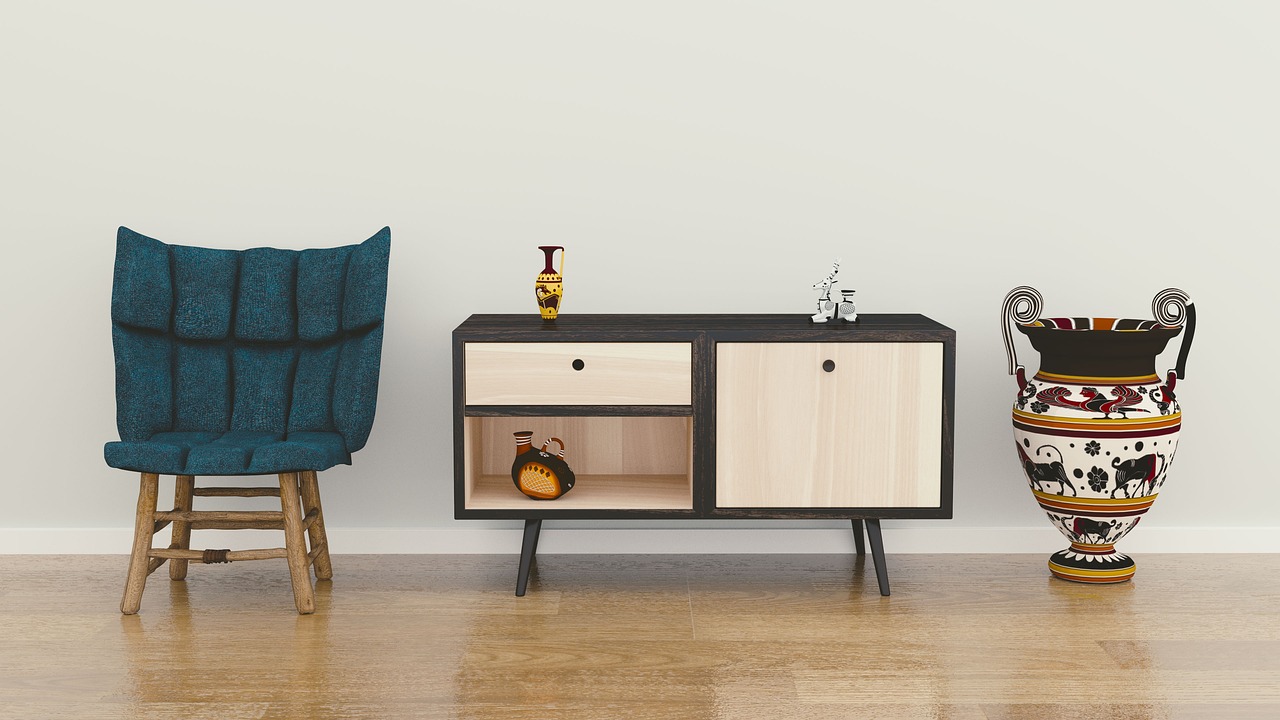Defining Minimalist Style (& Why it Matters)

With fast fashion and disposable decor everywhere you look, the minimalist style emerges as a refreshing approach to simplicity and sustainability. At its core, minimalist style focuses on quality over quantity, encouraging us to own fewer, better things. This philosophy not only transforms our wardrobes and living spaces but also supports a more sustainable and intentional way of living.
So, What Do We Mean by “Minimalist Style?”
Minimalist style is all about stripping away the excess and focusing on what truly matters. It’s characterized by clean lines, neutral colors, and a lack of unnecessary embellishments. When you see the term “minimalist,” it might conjure up images like this:

In reality, minimalism has little to do with the shape of your decor or the style of your furniture. While there is something to be said about the timelessness of simple pieces (and, therefore, their sustainability), minimalism goes beyond appearances. It’s a lifestyle choice that promotes sustainability and simplicity – not for fashion, but for our mental well-being.
The Problem
Minimalism has largely risen as a direct response to the quick and easy nature of today’s marketplace. Overconsumption has dramatically skyrocketed over the past several years, and it severely affects the planet, particularly in areas already experiencing challenges like extreme poverty.
The average American throws away 82 pounds of textile waste in a single year. Globally, we consume about 80 billion new pieces of clothing every year, which is 400% more than how much we consumed just two decades ago.
The primary culprit behind this shift? The abundance of cheap clothing and items, many of which are made using unethical labor practices and questionable supply chains. Their vast availability has made us slowly begin to see the things we buy and wear as disposable.
Nobody wins under our current reality (except the mega-corporations driving it) – not consumers, not workers, not suppliers, and not the planet. And research supports the notion that too much “noise” in our world from excess consumption and waste seriously impacts our health.
One study, for instance, demonstrated that materialism and consumerism can lead to depression and antisocial behavior. By adopting a minimalist mindset, you can combat these less-than-savory effects.
The Solution
Before you start trashing all of your fast fashion or plastic trinkets, take a pause. Rather than replacing all your belongings with minimalist items, start by identifying your favorites and necessities.
Slowly declutter the rest, and make sure your future purchases are intentional. This gradual shift will allow you to simplify your style and reduce waste over time.
The Minimalist Approach to Life
Minimalism is on the rise with its tangible, positive impact on mental health. Many people who start with minimalist fashion find it so liberating that they begin to extend this philosophy to other areas of their lives.
In many cases, the switch to minimalism begins with decluttering your wardrobe and home. As you reap its benefits, it can cast a light into other chaotic areas of your life like your schedule or mental clutter.
Living simply and intentionally is what it’s all about, so keep your mind open to new discoveries that are unique to your lifestyle.
No matter what, remember that minimalism contrasts sharply with consumerism. It promotes a lifestyle that’s not only better for mental health but also for the planet. By letting go of the things we don’t need and focusing on the things we can’t live without, we reduce our environmental footprint and cultivate a more meaningful, sustainable life.
Clothing
When it comes to clothing, minimalist style is all about timeless pieces, neutral palettes, and versatile designs that never go out of fashion. Think quality fabrics, simple cuts, and items that can be mixed and matched easily. Sustainable features like organic materials and ethical manufacturing practices are key here.
Jewelry
Minimalist jewelry focuses on understated elegance. Think delicate chains, simple rings, and classic studs. Sustainable jewelry often uses recycled materials and ethically sourced stones for eco-friendly beauty.
Decor
Minimalist decor is all about clean lines, neutral colors, and functional design. When every item has a purpose, it eliminates unnecessary clutter. Sustainable decor includes furniture made from reclaimed wood, eco-friendly textiles, and energy-efficient lighting.
Minimalism Brands
These days, many brands are dedicated to helping us simplify our lives while being eco-friendly and non-toxic. Here are a few of our go-to minimalist brands:
- Everlane: Offers transparent pricing and ethical manufacturing.
- Muji: Provides a wide range of minimalist home goods and clothing.
- Patagonia: Combines outdoor gear with sustainability and ethical practices.
- Cuyana: Focuses on fewer, better things in fashion.
- Brooklinen: Provides high-quality, minimalist bedding and home essentials.
What We Love About Going Minimal
At DGHQ, we love minimalism because it aligns with our goal of realistic, sustainable living. Minimalism has helped us declutter our spaces and minds so we can focus on what matters. Personally, adopting a minimalist lifestyle has reduced stress and increased our appreciation for quality over quantity.
We encourage you to embrace minimalism at your own pace. Start small, declutter gradually, and make intentional choices. Remember, minimalism is about making space for joy and purpose, not about perfection. Here’s to a simpler, more meaningful life!
Images: Monoar Rahman Rony from Pixabay; b13923790 from Pixabay


